
In today’s society where information flows freely, parents can easily receive different messages. However, these messages are often debatable or even wrong. Believing wrong information can easily lead to misguided choices and delay treatment, the consequences of which may last a lifetime. When conducting one-on-one consultations with parents, I often hear the following misguided views and ideas from parents. I share these with you to avoid detours in the process of choosing and receiving treatment:
Your child is still small, they will improve when they grow up. 
Many children with autism demonstrate different symptoms at an early age. However, due to the limited awareness of autism, parents often fail to detect them in time. Even if they are aware of the problem, they tend to believe that the child is still small and that they will gradually improve when they grow up. However, this mindset will cause the family to miss the opportunity for early treatment. If the child really suffers from autism, the problems will only become more and more obvious as he grows older. Therefore, if parents have doubts, they should take their children to a professional for an evaluation.
I started talking when I was three years old. 
The child will know how to speak after going to school. 
If the child is purely slow in learning to speak, then this statement may be true. However, if the child also exhibits other behavioral symptoms, such as low awareness towards the environment, narrow interests, and rigid behaviours, then their parents should seek a professional’s help to assess the child as soon as possible, so as not to miss the golden opportunity for early treatment.
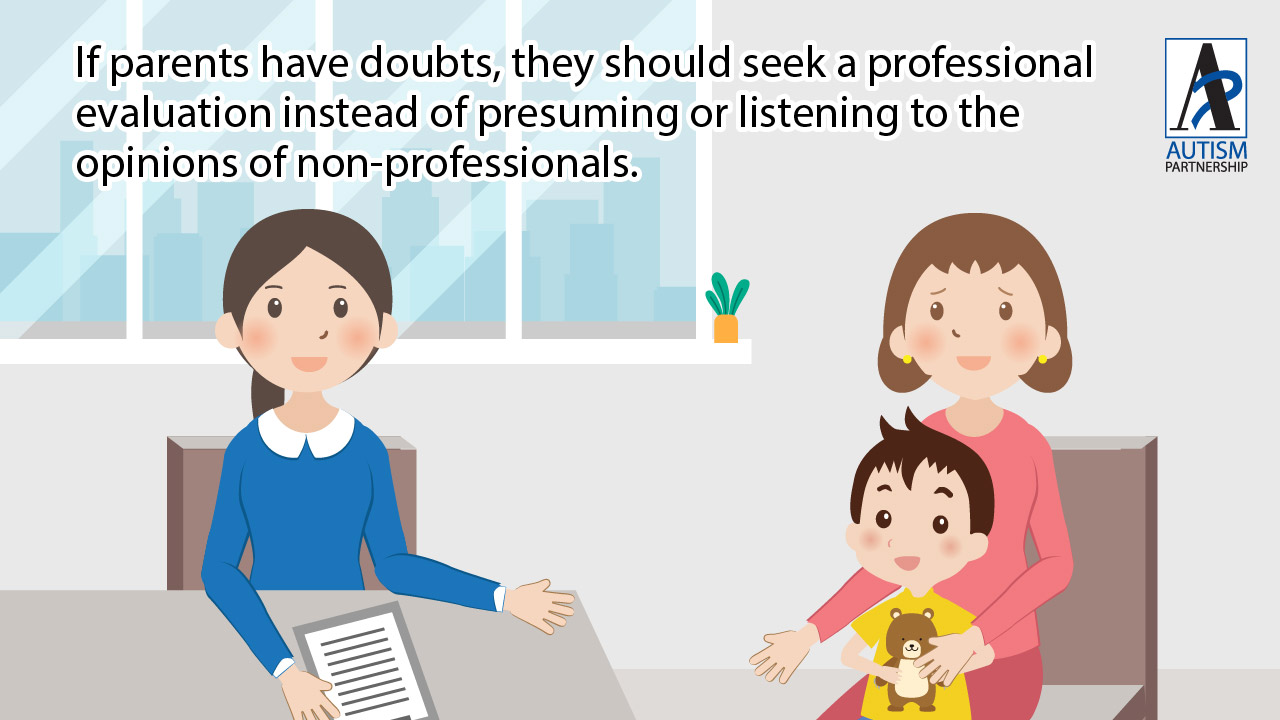
Your child doesn’t seem to have autism; don’t be too nervous! 
It’s just his character! Don’t worry! 
Children with autism cannot be distinguished from other children by their appearance. Many parents, especially mothers, are often able to accurately identify their children’s problems. However, insufficient understanding of autism and a tendency to subjectively believe that the child has no problem, will result in delayed treatment for their child. If parents have doubts, they should seek a professional evaluation instead of presuming or listening to the opinions of non-professionals.
Different treatment methods have their advantages and disadvantages. Parents should not let their children receive only one single treatment, but should let their children undergo diversified treatment. 
As early as 1987, studies have pointed out that receiving only ABA-intensive treatment is more effective than receiving a mix of other treatment methods. In 2005, another study pointed out that having a single therapy would be more effective than having eclectic therapies. In fact, this result is easy to understand. Different treatments use different approaches to teach children. For example, when we try to teach children to make requests, AP focuses on teaching children saying the names of the objects that they want. Meanwhile, other therapists may teach children to reach out and say “want” or pat themselves to express their desires. If children receive inconsistent treatment, they often feel confused and lost.
Intensive treatment is too tiring and would impose too much pressure for children. 
The intensity of treatment depends on the age and the level of the child. If the child is older or their ability is lower, the required treatment will be more intense. We have high expectations for our children and aim to narrow the gap between them and their peers, in the shortest possible time. In our experience, students as young as two years old can adapt to an ABA class of five to six hours a day in a short period of time. During the session, our students do not sit down all day to do tasks. Our consultants design many games for learning to offset the work tasks.
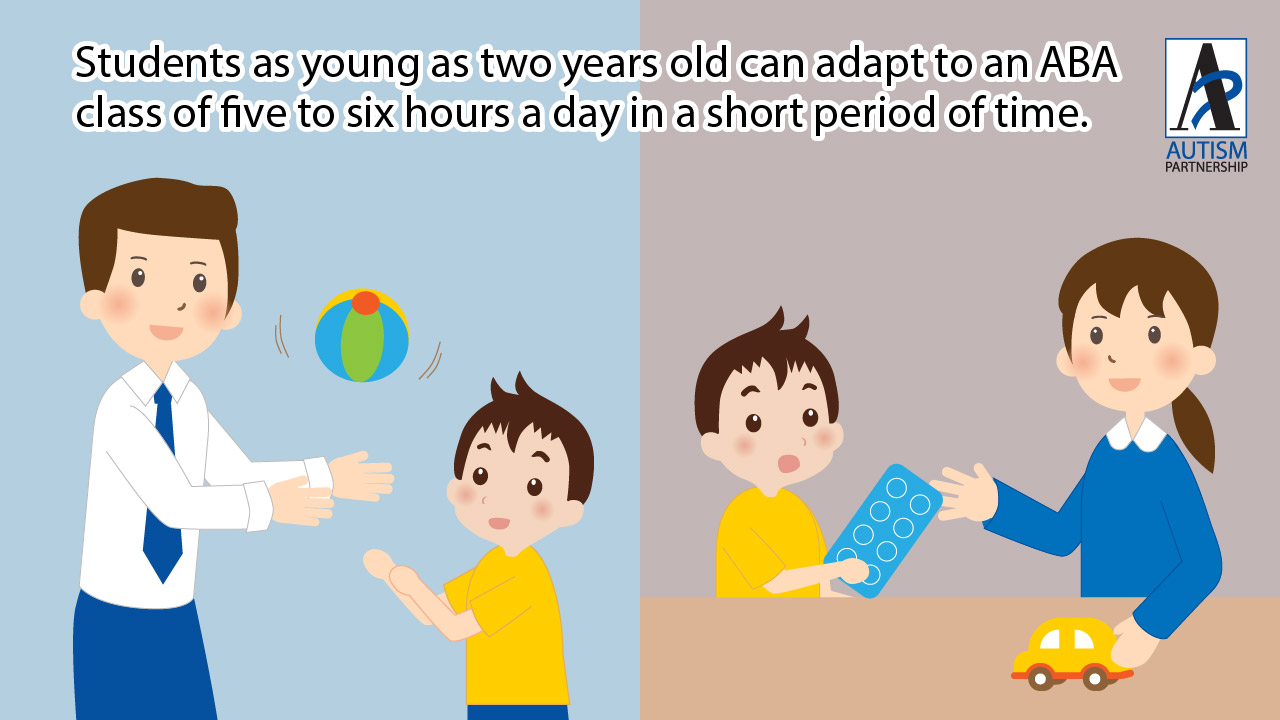
Let the child go to a mainstream school so he can experience the social opportunities that come from being with other children. His social skills will eventually improve. 
As typical children grow older, they establish basic skills before going to school that allows them to learn in a general social environment. They generally have a wide range of interest and keen observation of others. They also have a high motivation to learn and socialize in natural settings. Therefore, typical children can continue to learn and make progress in school. However, children with autism often have low motivation for learning and social interaction. In addition, their ability to concentrate is weak, with a low ability to focus on people and things around them. Under these unfavorable conditions, it is often just a wish to believe that children will learn or improve social skills in mainstream schools.
Ms. Lai-Kan Wong is a Certified Progressive Behavior Analyst (Autism Professional), a Board Certified Behavior Analyst, and holds a Master of Science in Applied Behavior Analysis. She embarked on her journey with Autism Partnership in 2001. Over the years, she has gained extensive experience working with children across different settings, including individual therapy sessions, small group training, and ABA classrooms. Ms. Wong is now responsible for overseeing Autism Partnership centers in Hong Kong, Beijing, and Shanghai, and she provides clinical support to consultants in different offices.
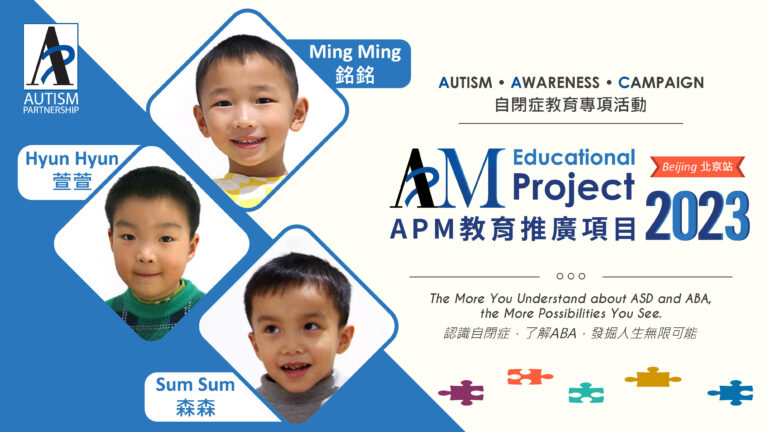
Every little life is a special present for a family. From the time a baby is born, parents journey through lots of highs and lows, wishing for their child to grow up with a big smile, make great friends, find their own way in a job they love, and create a happy family. However, for […]
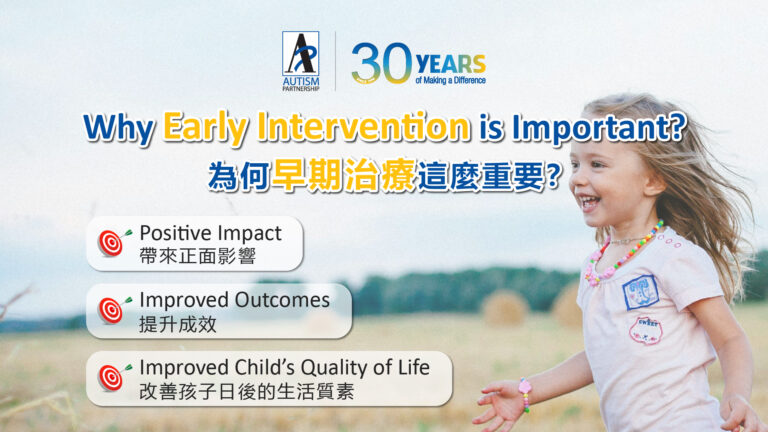
Autism Spectrum disorder can be diagnosed as early as 18 months. Research shows strong evidence on how effective Applied Behavior Analysis (ABA) can help children with Autism. It helps to deal with children’s challenging behaviors such as inattention, aggression, self-stimulation, etc. Howard, et al (2005) conducted a study to compare the effectiveness of 3 treatment […]
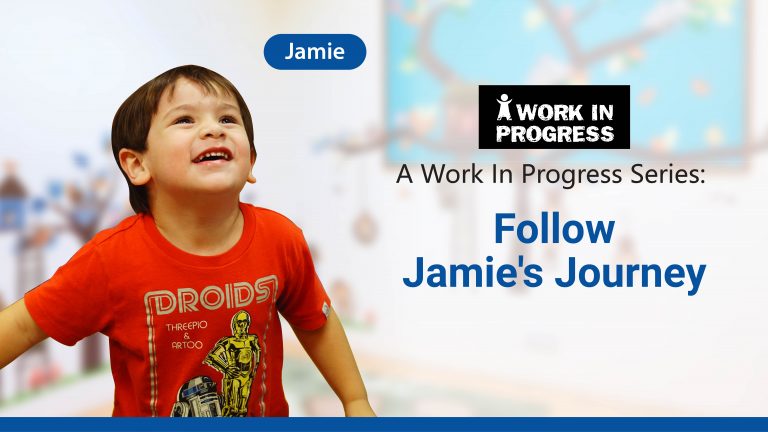
Jamie started full-day intensive ABA treatment at AP Singapore at the age of 2 years 10 months. Before receiving ABA intervention, Jamie’s parents shared that he does not use his words to communicate often. Even though he knows some words, he often relied on grabbing their arm or taking them to something he wanted, without […]
Please share to let more people learn about ASD and ABA therapy:
AP holds the belief that with quality Autism Partnership Method (APM) treatment, individuals with autism should reach their fullest potential and achieve the greatest degree of independence and highest quality of life possible.

Sign up now to get ABA and Autism related news delivered to your inbox. Enter your email to get started
Hong Kong Center
Kowloon Center

All information received will always remain confidential. We will contact you as soon as we review your message. Thanks